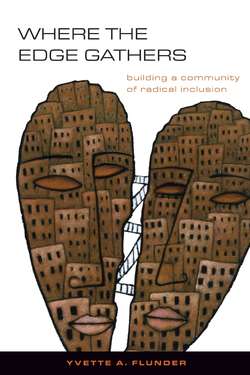Читать книгу Where the Edge Gathers: - Yvette A. Flunder - Страница 17
На сайте Литреса книга снята с продажи.
LONE WOLF ALTERNATIVE
ОглавлениеSome of my sisters and brothers feel that a full, unrestricted freedom for sexual intimacy between consenting adults is much more liberating and such freedom should not be accountable to the community by respecting existing relationship boundaries. I call this a lone wolf alternative where connections and relationships shift and change according to present feelings and without regard to commitments made, leaving enormous emotional and spiritual damage in its wake. There is great division in the SGL community around this issue. Although I do not seek to judge the rightness or wrongness of these opposing viewpoints, I have found it extremely difficult to experience sustained harmony in a church community where the lone wolf ideal prevails and where existing relationships are not honored.
By the “lone wolf” I mean that there are individuals who choose to move alone, not apparently connected to any one person for any length of time, actively seeking intimate sexual relationships throughout the community with various people, including those in relationships and perhaps with inappropriate persons such as underage youth. Sexual addiction is also a reality in all communities. Linda Handel in her discussion of sex addictions states that for the addict, “sex becomes confused with nurturing and caring because we live in a sexualized society where sex is confused with love.”11 She further states, “Another belief of sex addicts is that if they become dependent or committed in a relationship, their needs will not be met.”12 There are also couples who would rather not have the community involved in or aware of their relationships. In either case, there is virtually no relationship accountability to the larger community or opportunities for support. Often this is due to and born out of a history of not being accepted by the church, which results in a belief that same-sex relationships are not genuine and a desire to keep church and personal relationships separate. However, since these persons are within the community these relationships cannot be kept separate from the community, and the ebb and flow in the lives of each individual affects the community. Although these persons may seek to design a kind of relationship that keeps the church from doing them harm, it also prohibits true community involvement. While “moving alone” might function well where community is not present, opportunities for accountability are necessary for the cohesiveness of community. However, if the community does not support some affirmation of same-sex unions and other forms of family, how can same-sex people be expected to be accountable and how can those outside of these relationships respect the union?
I believe these opportunities for accountability should begin with respect for personal relationships and move out into other units such as committees, auxiliaries, councils, and the like. Fidelity is a learned behavior. I consider unions an opportunity for accountability for same-sex couples. Unclear personal commitments in any group cause blurred boundaries, thereby creating a great potential for inappropriate advances and behaviors. Preoccupation with these “affairs of the heart” hinders the work of the church and fragments the community.
In Personal Commitments, Margaret Farley lifts up the need for community involvement in strengthening our personal relationships. She asserts that any commitment is made stronger when there is some kind of communal support; our doubts are soothed, we are validated, our intentions are confirmed, our memories are more real, and we can get through the tough times when we know there are people alongside our relationship.13 Additionally, community is something to which a couple can mutually attend other than themselves, to keep their lives from becoming constricted. Living in community also ensures that we will leave a legacy—a difficult thing to do from a hiding place. It is essential that the church, as community, welcome and affirm same-sex unions, to heal some of the damage of the past (damage that has resulted in an internalized fear of exposure and vulnerability) and to create possibilities for accountability and involvement in community.
